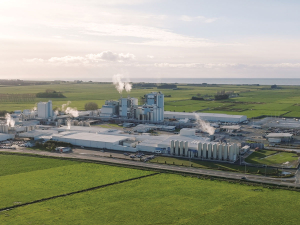His comments follow the voluntary suspension of sales and application of the nitrification inhibitor dicyandiamide (DCD) on farmland in response to the detection of the occasional presence of low levels of DCD in dairy products. Both major fertiliser cooperatives have announced the suspension until further notice.
"We still have every confidence in the potential for nitrification inhibitors to play an important role in helping New Zealand farmers to operate within nutrient loss limits," says Catto.
"While our nitrification inhibitor product DCn has been a small part of our portfolio we remain confident that continued research will result in the development of a nitrification inhibitor solution which delivers environmental benefits, meets international requirements and is supported by robust science."
Catto says Ballance has not sold DCn since July 2012 and has not promoted its use on pastures since late 2010. This means that only a handful of Ballance customers have recently used the product. As a precautionary measure Ballance will not reintroduce any DCD-based products to the market until the potential international trade issue of milk residues is mitigated.
Ballance ceased sales of DCn in early spring 2012 to review the product and its applications, and incorporated it into its $32 million research and development programme aimed at reducing nutrient and greenhouse gas losses through more efficient fertilisers and next generation nitrification inhibitors.
"This is in line with our science-based approach and emphasis on continual evolution of our product and service offerings to meet the needs of New Zealand farmers," says Catto.
"Our research is partially funded by the Ministry for Primary Industries through their Primary Growth Partnership and our work on nitrification inhibitor developments will take into account potential international trade concerns regarding residues in milk products."
Catto says Ballance strongly supports all moves to protect New Zealand's reputation for quality food and believes that all products used in food production must be backed by sound science and ongoing research.
Background
Ballance has manufactured and sold a dicyandiamide (DCD) nitrification inhibitor product, since 2004. Originally branded n-care, it was rebranded as DCn in 2007.
In DCn the active ingredient is absorbed into a granule. These DCn granules can be applied directly to the soil using correctly calibrated fertiliser spreading equipment.
Applied to pasture and forage crops to target urine, dung and fertiliser emissions, use of nitrification inhibitors can improve water quality, reduce production of the greenhouse gas nitrous oxide and increase pasture growth.










